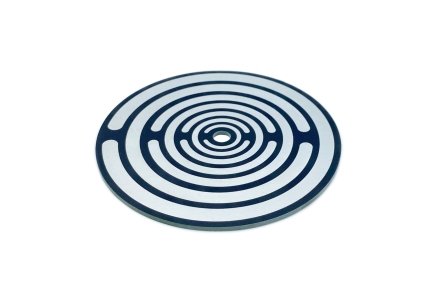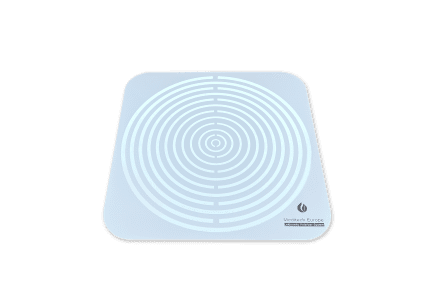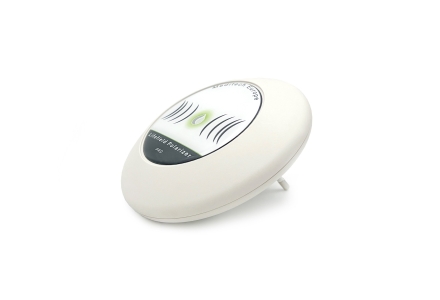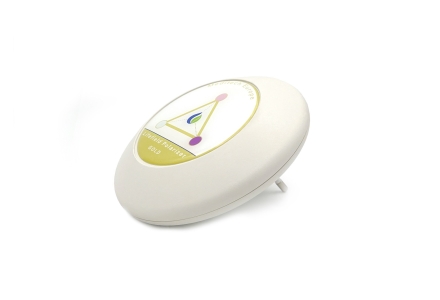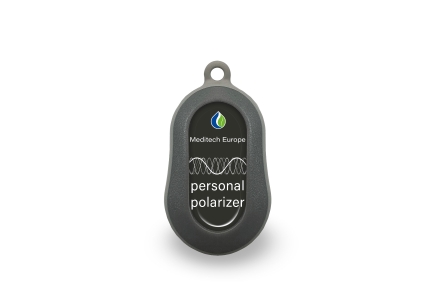
In our dynamic and demanding lives, stress is a common companion. Whether it is work-related stress, personal challenges or daily worries, stress can have a significant impact on our well-being. In this comprehensive blog post, we will explore stress from different perspectives, understanding what stress is, how it affects us, and what strategies we can use to deal with it effectively. Let's start.
What is stress
Stress is a natural response of the body to an external stimulus that is experienced as threatening. Whether positive, such as excitement for a challenge, or negative, such as the pressure of deadlines, stress activates a complex system of physiological and psychological responses. It can manifest on different levels, from everyday irritations to long-term challenges that test our resilience.
From an evolutionary perspective, there were three possible responses of the body to a threatening situation, namely “fight, flight or freeze”. The response is closely linked to the autonomic nervous system and aims to quickly mobilize the organism to respond to potentially dangerous conditions. Here's more information on each aspect of this response:
- Fight: When the body perceives the threat, the nervous system activates the body's "fight" response. Muscles tense, senses sharpen and attention is focused on identifying and addressing the threat.
- Flight: When the danger is considered too great to fight, the body is prepared to flee. The same reactions take place, mobilizing energy to move quickly. The focus shifts to identifying the fastest and safest escape route.
- Freeze: Sometimes the organism is faced with a situation where fight or flight is not considered effective, and instead the "freeze" response occurs. This response may involve reducing movement and minimizing external cues, possibly with the aim of remaining undetected by a potential threat.
The "fight, flight or freeze" response is adaptive and over the course of evolution has helped us survive dangerous situations. Although this response is still relevant, it can sometimes be activated inappropriately in modern societies, for example during stressful situations at work or in everyday life. Understanding this response can be helpful in developing effective stress management techniques and promoting balanced well-being.
The Science Behind Stress: Brain Waves and Hormones
The autonomic nervous system therefore plays a crucial role in stress and is divided into two branches: the sympathetic nervous system and the parasympathetic nervous system:
The sympathetic nervous system is activated during stressful situations (“fight or flight”). It prepares the body for action by releasing hormones such as adrenaline, which increase heart rate, speed breathing and increase blood pressure. This allows the body to respond quickly to potential dangers.
The parasympathetic nervous system, on the other hand, is responsible for promoting relaxation and recovery. It is activated in calm situations and helps the body return to a state of equilibrium after a stressful event. It slows the heart rate, promotes deeper breathing and stimulates digestion.
In addition to these physiological responses, stress also has a profound impact on our mental state. Anxiety, irritability and concentration problems are common psychological responses to stress. Furthermore, prolonged exposure to stress can lead to mental fatigue and even mental illness.
Interestingly, not everyone shows the same stress response in similar situations. Individual differences, coping mechanisms and resilience all play a role in how we deal with stress. What is a challenge for one person may be bearable for another.
As we know, body and mind influence each other. Physical stress responses are measurable. This includes, among other things, heart rate, muscle tension, breathing, skin temperature and skin resistance. But research has shown that brain waves, which we can measure with, for example, an EEG, can also change during stress. However, it is important to note that stress does not cause just one specific brain wave pattern. Several factors can influence brain activity.
Brain waves can be divided into certain frequency ranges, such as alpha, beta and theta, and these reflect the electrical activity in the brain and can vary depending on stress levels. Alpha and theta brain waves are often associated with development tension and beta brain waves with alertness and concentration, but also with possible stress. A better understanding of these processes can help address stress in a more targeted way.
What types of stress can we distinguish?
So stress is actually a form of tension. And in order to perform optimally, we all need a certain level of stress. This level of stress can be both positive and negative. In addition, stress can be short-term or chronic. It should be noted that chronic (long-term) stress is often more harmful to the body than short-term stress.
Moderate short-term stress can even serve as a motivator and provide impetus to achieve goals. However, it is the excess of stress and the inability to deal with stress effectively that can cause the harmful effects. Stress can therefore occur in different degrees, from low to high we have:
- no challenge
- flow, a form of positive stress
- positive short-term stress
- negative short-term stress
- chronic, long-term negative stress
Causes of Stress
Stress can arise from different sources and causes, ranging from external situations to internal factors. Below are some common causes of stress:
- Work-related Stress: high workload, tight deadlines, excessive responsibilities and performance pressure, conflicts or dissatisfaction with the working environment.
- Financial Stress: Debt, financial worries and debt management can cause significant stress. This includes concerns about job security, retirement or economic uncertainty.
- Relationship-related Stress: conflict in relationships such as problems with partner, family conflicts, divorce. The lack of supportive social relationships (loneliness) can also cause stress.
- Life Changes and Transition Phases: these changes can be positive, but can also cause stress. This also includes separation or loss.
- Health issues: Dealing with long-term health problems can be emotionally and physically demanding. Acute health problems can also cause immediate stress.
- Environmental factors: such as noise pollution and exposure to polluted environments.
- Time-related Stress: such as lack of time, constant time pressure and an overcrowded agenda.
- Performance and Perfection: This includes perfectionism, which can lead to stress and fear of failure and therefore not meeting expectations.
- Technological Overload: Today's modern society can cause stress due to the constant connectivity and constant flow of information. This means that separating work and private life is more difficult than before.
It is important to note that individual responses to stressors vary and what is stressful for one person may be tolerable for another. Furthermore, multiple stressors can be present simultaneously, increasing the complexity of stress experiences. However, identifying specific causes of stress can be the first step toward effective stress management strategies.
Possible solutions
In addition to eliminating or reducing stressors, which is not always possible, there are several effective strategies to reduce and cope with stress. The choice of a particular solution may depend on the nature of the stressor and individual preferences. Here are some solutions commonly recommended for managing stress:
Relaxation techniques:
Deep breathing: Controlled breathing can reduce the physiological stress response.
Progressive muscle relaxation: Systematic relaxation of different muscle groups.
Biofeedback and Neurofeedback:
Biofeedback is a therapeutic technique in which individuals learn to consciously control certain physiological functions of their body, such as heart rate, muscle tension, breathing and skin temperature. This is usually done using electronic sensors and monitoring equipment, allowing people to understand their body responses and learn how to influence these responses to improve their health and well-being. Neurofeedback is a specific form of biofeedback in which brain waves are made visible so that you can learn to consciously influence your brain activity.
Mindfulness and Meditation:
Mindfulness: Consciously being present in the present moment can reduce stress.
Guided Meditations: Listen to guided meditations for relaxation.
Exercise:
Regular exercise: Physical activity reduces stress hormones and promotes the release of endorphins.
Yoga or Tai Chi: These practices combine movement with relaxation techniques.
Healthy lifestyle:
Balance in nutrition: A balanced diet can promote overall health and resilience.
Sufficient sleep: A good night's sleep is essential for recovery of body and mind.
Social Support:
Talking to friends or family: Sharing feelings can provide emotional relief.
Seeking professional help: Therapy or counseling can help cope with stressors.
Time management:
Prioritize: Identify important tasks and manage your time effectively.
Take breaks: Take short breaks regularly to reduce stress.
Cognitive Behavioral Therapy (CBT):
Negative Thought Restructuring: Identify and change negative thought patterns.
Goal-oriented coping strategies: Learn to deal effectively with stressful situations.
Hobbies and Recreation:
Relaxing activities: Do things you enjoy to reduce stress.
Creative expression: Painting, writing, or other creative pursuits can be therapeutic.
Technology detox:
Limit screen time: Reduce exposure to radiation and digital devices.
Digital detox days: Regularly take a day off from technology and go into nature.
It is important to remember that effective stress management strategies vary between individuals. It can be helpful to try different approaches and discover which ones suit you best. A combination of different solutions can often be the most effective in managing stress in different situations. Meditech Europe also offers various products and solutions that can provide more balance and reduce stress:
- Polarizer Plates
- Personal Polarizers
- Life Field Polarizers
- Lakhovsky Polarizer Systems
- Multiwave Oscillator
Conclusion
In a world that seems to be becoming increasingly demanding and in which the pace is increasing, stress cannot always be prevented. That is why it is good to know what stress is and how it arises. Fortunately, there are also solutions available to reduce and control the stress we experience.
Meditech Europe is ready to advise and guide you. If you would like to know more about stress and how Meditech Europe can support you in reducing stress and finding more balance, please contact us at info@meditecheurope.nl or +31527 292 331.
